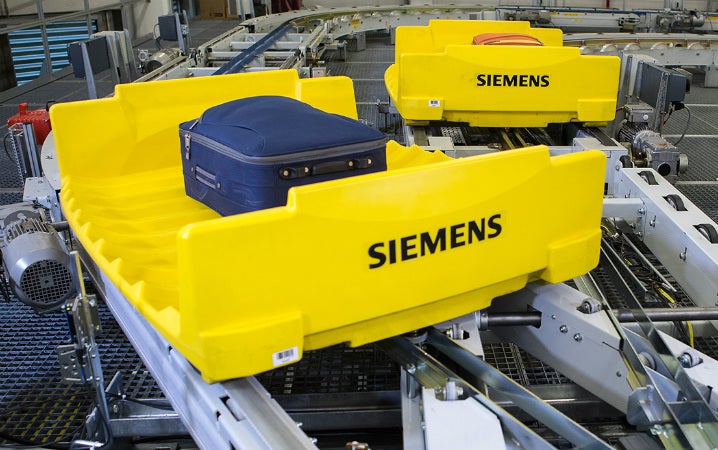
Siemens Postal, Parcel & Airport Logistics (SPPAL) has received a major order for the installation of a state-of-the-art baggage handling system at the international Paris-Charles de Gaulle Airport in France. The customer is the airport operator Groupe Aéroports de Paris (ADP), a world leader in airport design, construction and operation.
The customer will benefit from the full portfolio of innovative products and solutions that Siemens offers specifically for large transfer airports. The scope of supply ranges from the tilt-tray sorter through the new tray technology to intelligent software applications for controlling the baggage handling system.
With the new turnkey baggage handling system, Siemens will automate and accelerate transfer baggage processing in Terminal 2E and F as well as in the two satellites S3 and S4, which are used by Air France. In 2016, around 66 million travellers passed through Paris-Charles de Gaulle, making it the second busiest airport in Europe and the eighth busiest worldwide.
"We’re delighted about this strategically important order from France," says Michael Reichle, CEO of Siemens Postal, Parcel & Airport Logistics. "Siemens has already installed the Tri Bagages Est (TBE) baggage handling system in Terminal 2E and F of Paris-Charles de Gaulle Airport. Our long-term contract to operate and maintain the system underlines the excellent cooperation with ADP."
Christophe Bardin, Head of Baggage Handling Systems Projects at Paris-Charles de Gaulle Airport with ADP, adds: "Around one third of our passengers have booked connecting flights and are using Paris as a hub airport. Fast and efficient transfer baggage handling is crucial to achieve minimum connecting times (MCT), and therefore is a real flagship for our airport."
In the Siemens system, two innovative tilt-tray sorters VarioSort TTS 1100 presort the baggage in satellite building S3. The sorters are designed to handle large volumes of baggage reliably. In the connecting tunnel between satellites S3 and S4 Siemens is installing a high-speed VarioTray line.
In the 400m-long tunnel, the containers will reach peak speeds of 5m/s. The system has been specially designed with redundant features to guarantee the maximum possible flexibility and availability.
The new Siemens trays will also be used in the main baggage sorting facility in satellite building S4. A particularly impressive feature of the fast, high-throughput solution is its outstanding energy efficiency: the belts under the trays run over rollers to prevent dynamic friction between the belts and conveyors.
The considerably reduced weight of the new trays helps to lower energy costs even further. Thanks to their robust design featuring a guiding roller, wear is kept to a minimum. This results in above-average operating times, which in turn has a positive impact on lifecycle costs.
To temporarily keep transfer baggage, SPPAL is also implementing a tray-based early bag store (EBS) comprising a high-bay warehouse with capacity for 2,500 items of baggage. With the new Lift&Run system, the Siemens solution is considerably more flexible and efficient than comparable systems because lifts perform the vertical movements while shuttles perform the horizontal movements.
The movements take place simultaneously but independently of one another. Siemens is currently equipping the international airports in Guangzhou (southern China) and Incheon (South Korea) with early bag stores of this kind; Dubai International has already been using the solution successfully for some time now.
To facilitate intelligent process control throughout the entire baggage handling system, Siemens implements high-performance software applications. These include for example a programmable logic controller (PLC) and a SCADA system for computer-based monitoring and control of all technical processes.
Apart from Paris, 13 more of the top 20 passenger airports worldwide are among SPPAL’s customers. Over 900 million passengers pass through these airports every year – more than every fourth passenger worldwide. Siemens’ successful track record also includes long-term operating and maintenance contracts with almost 40 airports.

